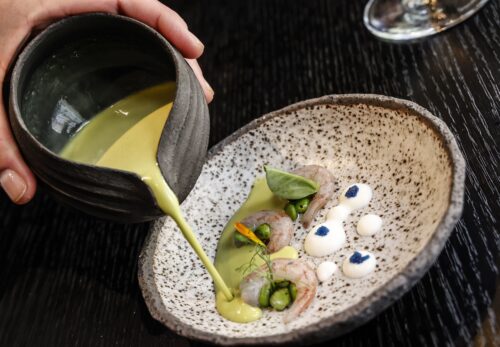Strange Future

“Strange Future” is part of the collection Poems of Witness and Possibility: Inside Zones of Conflict. Read the introduction to the collection here.
—after Hayden Carruth
Unlike hope, which tricks us with future expectations,
My daughter insists we can build the world around us
Again, if we choose—any tree can become a ladder
And my heart begins to dream again. Is it memory
If I stand by a riverside full of trash and plastic?
Once someone told me I inherited my mother’s heart.
When I love, I press every moment like a garlic clove.
I mean, my country is changing. How tricky this makes
The word drought. And yet, the earth feels hotter today.
When I say, I miss home, what I mean is “I’m filled with
[1]
[1]
Phrasing draws from Hayden Carruth’s poem “Swept.”
Dread.” I doubt if this cyclone can distinguish my mother’s
Poor shelter. Famine comes quietly, and I sieve through
The long silence for the songs my grandmother taught me
While attempting to describe the many days of low rainfall—
Here, the green pastures have become dust, carcasses
Of goats and sheep line the roadsides. All climate refugees
Are pastoralists, yet the reverse is false. There has to be
A way to save this tilting Earth without sacrificing myself
Or my lovelies to cholera. Nothing restores the sense of loss
Less ambiguously than the feelings in which something is
At stake. Do you think the Earth will ever achieve healing?
What about home? There is too much smog. I’m awake,
It’s murky outside; it must be a sandstorm. The terrible
Pangs that flow down from the names of our transgressions.
It reminds me of everything we have failed to do and what I do
Know is we have no imaginary future if we continue to
Stand on the same stepladder every few years and swap
Around reduced emissions
Editors’ note: “Strange Future” was originally published in 2021 by Scene Stirling as part of the Creative Ecosystems project.

























